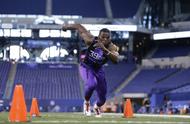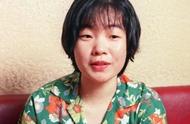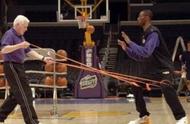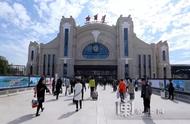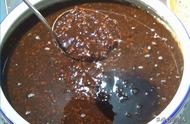Explosive basketball athletes require optimal muscle elasticity. Reactive strength is reliant on eccentric force development, elastic energy storage and release, and muscle reflexive properties. Concentric force production is also correlated with the reactive strength index . Training to increase reactive strength involves the stretch-shortening cycle and, therefore, serves as another mode of resistance training. Performance in agility tests may also be related to reactive strength attributes. In another analysis, female athletes who exhibited faster agility times had shorter ground contact braking times when compared with slower athletes . The ability to move quickly around the basketball court is highly related to the athlete’s ability to interact with the ground properly. Stronger athletes exhibit higher ground reaction forces. In many instances a basketball athlete must stop very quickly and move in another direction. Other times, a center will jump vertically to rebound a ball that bounces around the rim. The delay will require the athlete to land and quickly jump up a second time. People with superior lower body strength have higher peak power output during jumping activities . As a result, the stronger athlete will be able to minimize ground contact time while still being able to reach near maximal jump height in the second jump.
具有爆发性的篮球运动员需要最佳的肌肉弹性,反应的刺激强度依赖于肌肉向心力的产生,弹性势能的储存、释放以及肌肉反射特性,向心力的产生也与反应强度指数相关。而增加反应性力量的训练涉及到肌肉拉伸后的缩短周期,因此也是抗阻训练的另一种模式。敏捷性测试中的表现也可能与反应强度的属性有关。在另一项分析中,与速度较慢的运动员相比,表现出更快敏捷时间的女性运动员的地面接触制动时间更短,这种在篮球场上快速移动的能力与运动员与地面接触利用反作用力的能力高度相关,更强壮的运动员表现出更高的地面反作用力。在许多情况下,篮球运动员必须非常迅速地停下来,并朝着另一个方向去移动。有些时候,中锋会垂直起跳,来抢在篮框边缘反弹而出的球,在这个过程当中运动员常常需要快速地二次起跳。下半身力量超群的人在跳跃活动中具有较高的峰值功率输出,因此,更强壮的运动员将能够最大限度地减少与地面接触时间,同时,仍然能够在第二次跳跃中达到接近最大跳跃的高度。
Over the total distance covered in a game, a basketball athlete can experience various movement demands that place a tremendous amount of mechanical stress on the body. To grasp the importance of resistance training for the basketball athlete, a coach must understand that performance attributes like agility, power, and speed rely heavily on strength. The neuromuscular adaptations brought on by mechanical stress will be specific to the manipulation of several resistance training variables such as load, sets, repetitions, tempo, and rest period length.
在一场比赛所覆盖的总运动距离内,篮球运动员可能体验到各种运动需求,这些要求会给身体带来巨大的机械压力。为了给篮球运动员抓住抗阻训练的重要性,教练必须了解运动表现中的属性像灵敏、爆发力以及速度等都非常依赖与运动员的基础力量。机械应力所带来的神经肌肉适应性将特定于几个阻力训练变量的结合分配,例如训练负荷,训练集合,训练的重复性,节奏性以及休息期的长度。
Each quality of strength is unique and plays a role in injury prevention and reaching optimal physical performance. Change of direction involves multiple components of strength including eccentric (braking), isometric (planting), and concentric (propulsive) phases (59). Movements such as jumping and cutting rely on the ability to absorb the forces effectively in order to redirect those forces and produce maximal concentric power. Therefore, the ability to decelerate and reaccelerate quickly is related to eccentric strength. Accentuated eccentric overload training appears to improve muscle architecture, strength, power, and velocity more than traditional resistance training does (12, 30). As a result, eccentric training should also play an integral role in a basketball athlete’s resistance training program.
每种力量都是独一无二的,尤其是在预防伤害和达到最佳身体表现方面扮演着重要作用。变相能力涉及力量的多个组成部分,包括肌肉的离心收缩、等距收缩和向心收缩。跳跃和切入等运动依赖于肌肉有效吸收动力势能的能力,以便重新定向这些力并产生最大的向心收缩力。因此,快速减速和再加速的能力与肌肉离心收缩产生的强度有关。而与传统的抗阻训练相比,突出离心超负荷训练似乎更能改善肌肉结构、力量、爆发力和速度能力,因此肌肉的离心训练也应该在篮球运动员的抗阻训练计划中发挥不可或缺的作用。
Over the total distance covered in a game, a basketball athlete can experience various movement demands that place a tremendous amount of mechanical stress on the body. To grasp the importance of resistance training for the basketball athlete, a coach must understand that performance attributes like agility, power, and speed rely heavily on strength. The neuromuscular adaptations brought on by mechanical stress will be specific to the manipulation of several resistance training variables such as load, sets, repetitions, tempo, and rest period length.
伸展收缩循环活动在反向运动中起着重要作用,较强的肌肉能够比较弱的肌肉更好地收缩和储存弹性能量。储存在肌肉以及肌腱单元中的弹性能量是在肌肉离心阶段产生的,当然,这种形式的能量储存可以转移到向心加速阶段,在所谓的偿还阶段,运动员转移这种能量的能力越强,执行爆炸性反向运动的活动能力就越强。例如,Bridgeman及其同事的研究表明,下半身离心力量与整体跳跃性能高度相关,抗阻训练增加了离心力量,将离心抗阻训练与传统的向心训练模式相结合可以对跳跃表现产生积极影响。此外,尽管在肌肉收缩运动执行失败时,无论负载如何,都可以募集II类肌纤维,但重负载时必须需要II型肌纤维的募集。此外,重负荷似乎更能有效地引发神经适应,从而反过来促进力量改善,因此,重负荷或爆发性抗阻训练,可能是篮球运动中反向活动中增加力量产生的有效手段。
Muscle architecture influences the athlete’s ability to move explosively. When looking at dynamic movements such as the countermovement jump, jump height, peak force, and peak velocity are all related to greater vastus lateralis thickness and gastrocnemius pennation angle. In general, resistance training improves muscle thickness, pennation angle, and fascicle length. Regardless of training goals, an important goal is to bridge the gap between injury prevention and reaching optimal performance. Carefully designed resistance training programs performed in combination with ballistic, high-velocity basketball-specific movements may optimize muscle geometry and enhance performance in a dynamic, explosive sport such as basketball.
肌肉结构影响运动员的爆发性移动能力。当观察动态运动时,例如反向运动跳跃、跳高、最大力量和最大速度都与更大的外侧腹肌厚度以及腓肠肌侧倾角有关。一般而言,抗阻训练改善肌肉厚度,尖角和筋膜长度。无论训练目标如何,一个重要的目标是伤害预防和达到最佳表现之间的桥梁。精心设计的抗阻训练计划,快速篮球运动相结合,可以优化肌肉几何形状,并提高篮球运动动态态与爆发力的表现。
